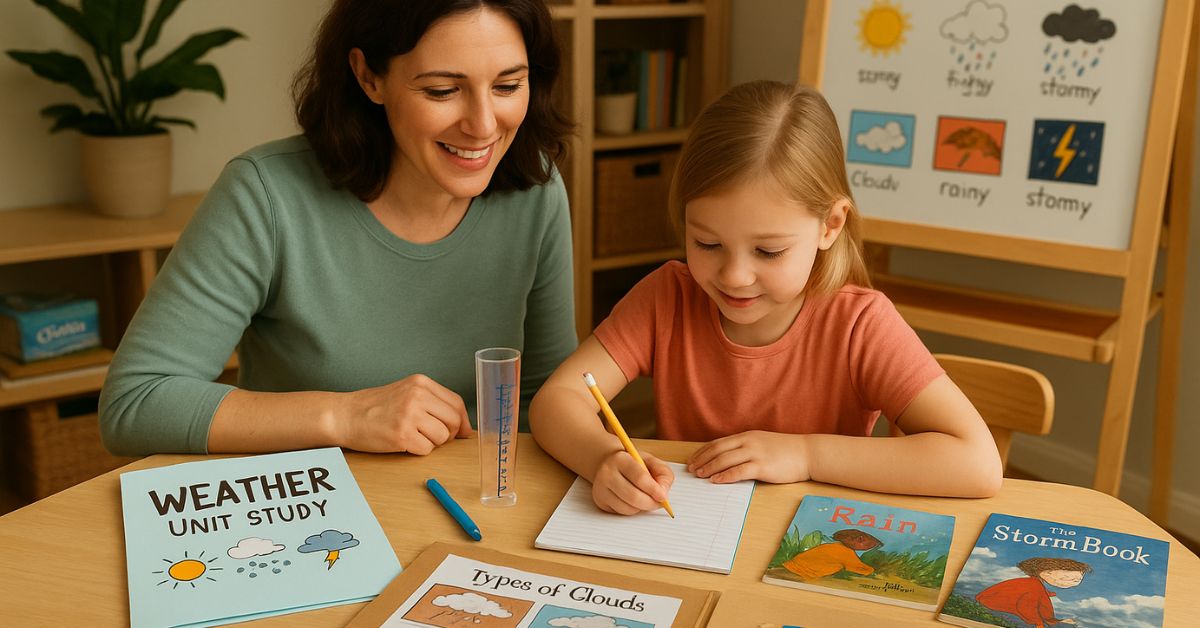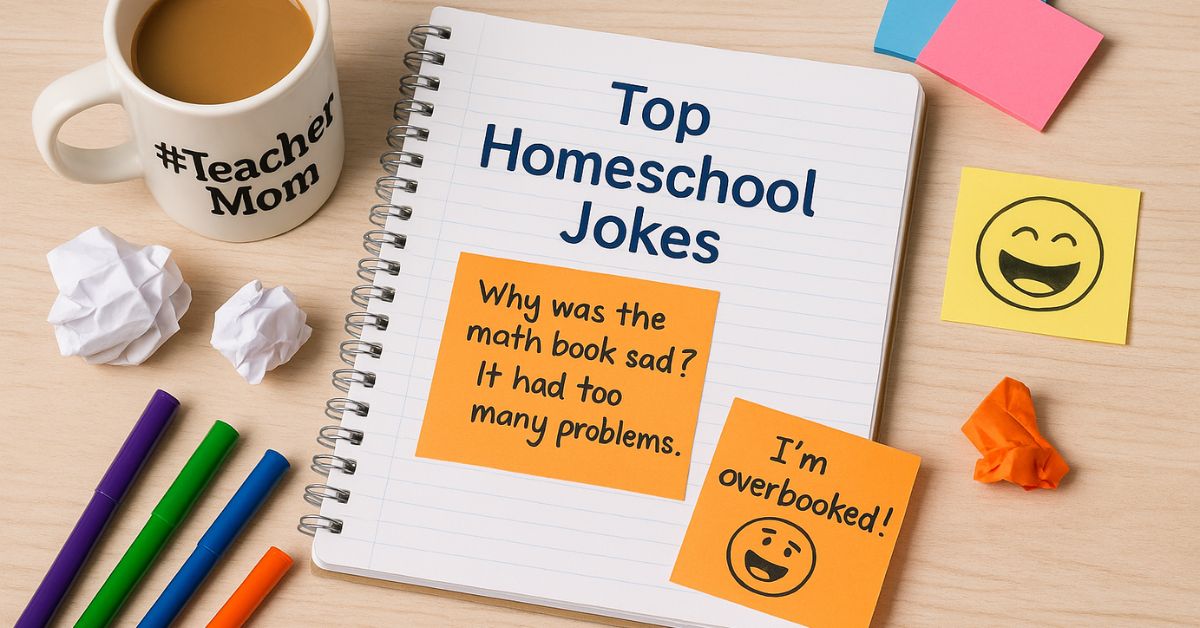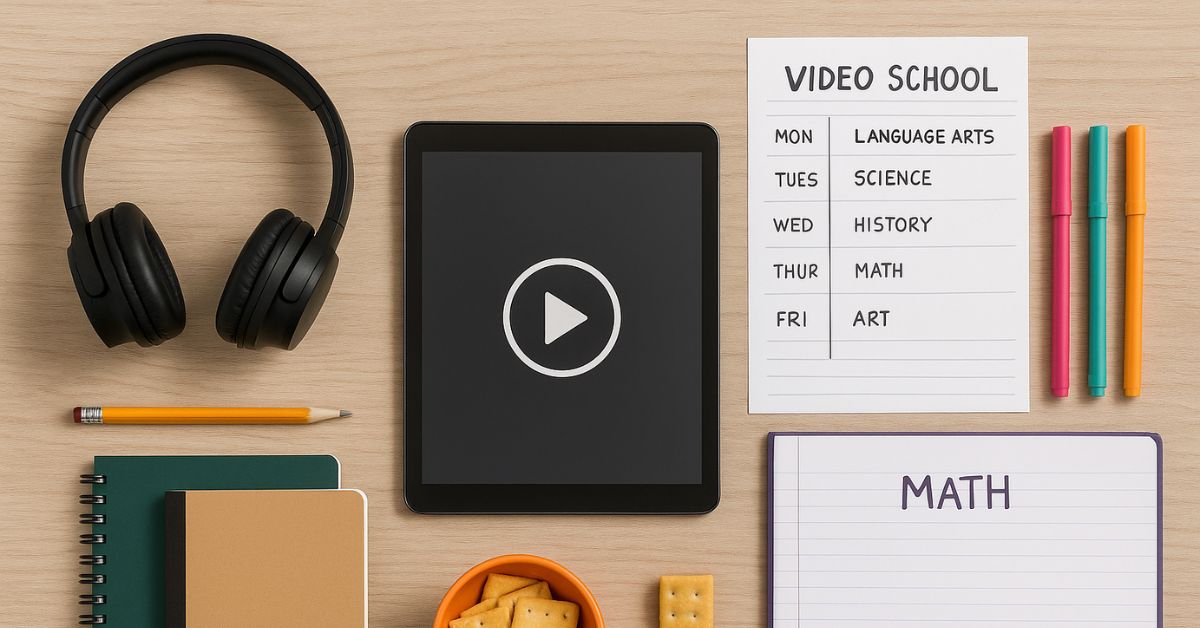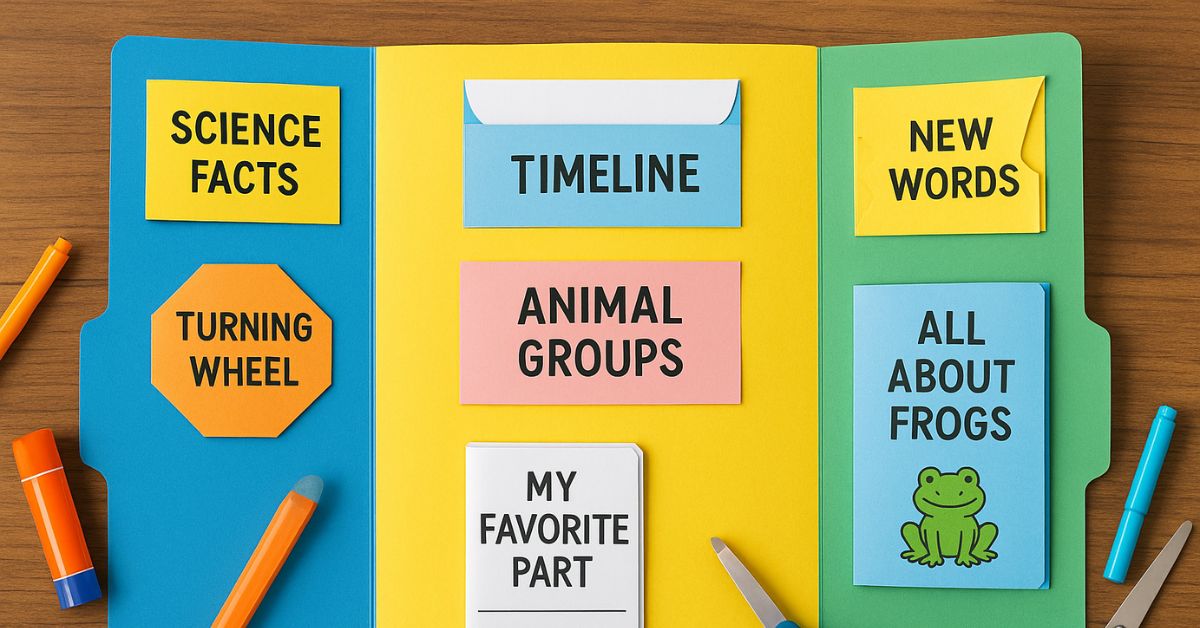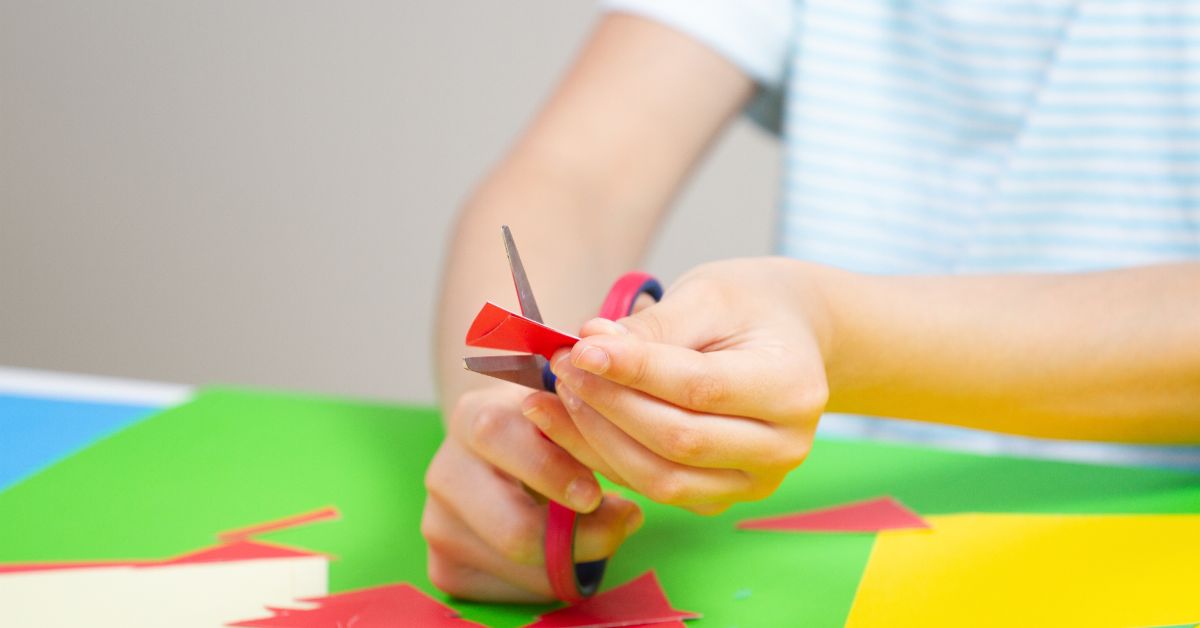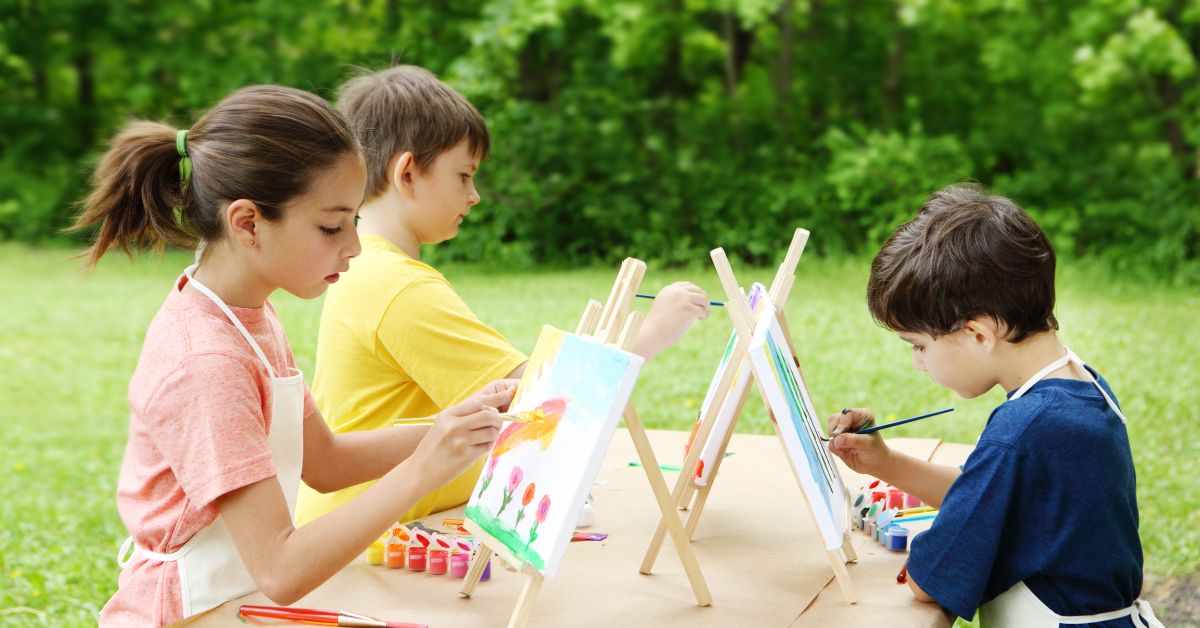How Much Does It Cost To Homeschool A Child?
Homeschooling offers a flexible and personalized way to educate your child, but it also leaves parents wondering about the costs involved. Unlike traditional schooling, where tuition fees and school supplies are relatively standard, the expenses of homeschooling vary widely depending on factors like curriculum choices, extracurricular activities, and how resourceful you are.
Below we break down potential homeschooling costs, share budgeting tips, and explore affordable options to make homeschooling work within your financial limits.
Homeschooling Costs Breakdown
One of the biggest advantages of homeschooling is its flexibility, and that extends to your budget, too. Homeschooling can be as affordable or as expensive as you choose to make it. Here’s a breakdown of the key costs associated with homeschooling:
- Curriculum
- Pre-packaged curriculum programs can cost between $300-$2,000 per year, per child. These often include lesson plans, textbooks, and supplemental materials.
- Instead, you might opt for a la carte resources, purchasing or downloading only what you need, which can significantly lower costs.
- Free curriculum options are also available online, such as Khan Academy or state-provided resources.
- Learning Materials
- Books, workbooks, and educational tools typically cost $200-$500 per year.
- Science equipment like microscopes or lab kits might cost an additional $50-$200 annually.
- Many parents also invest in manipulatives (e.g., math cubes, flashcards, puzzles) that cost $100-$300 but can last several years.
- Technology
- If you rely on online resources, you might need a dedicated laptop or tablet, ranging between $150-$600, depending on the brand and features.
- There are also monthly subscriptions to software or apps, such as grammar tools or e-learning platforms, which can add up to $10-$50 per month.
- Extracurricular Activities
- Sports teams, music lessons, or art classes can range from $50-$200 per activity, per month. Some parents choose group classes to reduce costs.
- Zoos, museums, and other field trips might cost $10-$50 per ticket or membership.
- Testing Requirements
- Some states or programs require annual standardized tests, which can cost $40-$200 per year, depending on the test provider.
- Miscellaneous Expenses
- Expect a few unplanned costs throughout the year, such as additional books, printer ink, or special events. Budgeting an extra $100-$300 can help cover these surprises.
By categorizing these costs, you can better understand which areas of homeschooling might stretch your budget and where you can save with a bit of creativity.
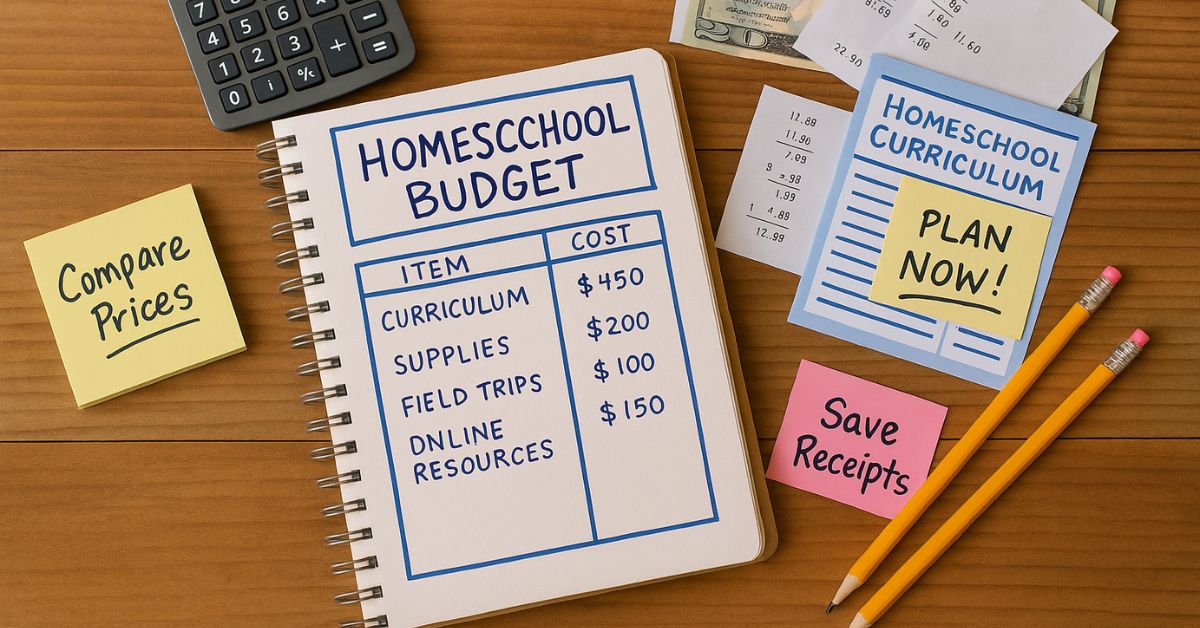
Budgeting Tips For Homeschooling
Managing your homeschooling expenses starts with smart budgeting. These tips can help you prioritize spending without sacrificing quality.
- Plan Your Annual Budget in Advance
Before starting your school year, estimate your total costs and break it down by category, such as curriculum, activities, and materials. This approach helps you avoid overspending in one area and ensures you allocate funds according to your priorities. - Focus on Multi-Year Investments
Look for items that can be used across multiple grades or children. For instance, purchasing classic literature books, ungraded workbooks, and durable educational tools can save money over time. - Use Free or Low-Cost Resources
Sites like Khan Academy, CK-12, and YouTube offer extensive free content in subjects ranging from math to history to science experiments. Public libraries also provide free access to books, audiobooks, and DVDs. - Buy Secondhand Materials
Facebook groups, apps like OfferUp, and homeschool co-ops often have parents selling curriculum, workbooks, and other supplies at reduced prices. Once your child is done with certain resources, you can resell them. - Set Up a Homeschool Sharing Network
Create a group with local homeschooling families where you can trade books, lessons, or even expertise. For example, one parent might teach an art class while another focuses on science. - Track Your Expenses
Use a spreadsheet or budgeting app to monitor your spending throughout the year. When you regularly review your expenses, you’ll notice patterns and can adjust when necessary.
Staying organized and resourceful will allow you to focus on learning and fun, rather than financial stress.
Affordable Homeschooling Options
Homeschooling doesn’t have to cost a fortune. Many families successfully homeschool on a shoestring budget by using affordable or free resources. Below are some practical ideas to keep costs down while still providing a high-quality education.
Free Curriculum Options
There are many free curriculum resources available online:
- All-in-One Options: Websites like Easy Peasy All-in-One Homeschool and Ambleside Online provide full-year schedules and curriculum for free.
- Subject-Specific Tools: Use free tools tailored to single subjects, like Prodigy for math, Duolingo for foreign languages, or National Geographic Kids for science and geography.
- Public Resources: Check out resources available through your state’s Department of Education or local library. Some libraries even offer databases with online classes.
Public Libraries
Libraries are an underrated yet powerful resource for homeschooling families. Along with borrowing books and DVDs for free, many libraries:
- Host educational workshops, STEM events, or book clubs
- Provide access to free tutoring, such as through programs like Tutor.com
- Offer online databases filled with academic journals or primary documents for history lessons
Homeschool Co-Ops and Community Resources
Community homeschool groups or co-ops are fantastic for both social opportunities and resource-sharing. Many co-ops offer group classes, which can lower costs per child while enhancing the quality of some subjects that benefit from specialist knowledge, like advanced science experiments or foreign languages.
DIY Approach to Education
Homeschooling doesn’t have to rely on pre-packaged curricula or structured programs. With some effort, you can build your lessons from scratch using free online resources, open-source textbooks, and your creativity. For example:
- Use Pinterest for arts and crafts project ideas
- Incorporate everyday activities, such as cooking, for real-world math and chemistry lessons
- Turn budgeting and shopping into lessons about money management
Affordable Extracurricular Activities
Balancing academics with extracurriculars is essential, but you don’t have to break the bank to do it:
- Look for city or county recreation programs, which often offer lessons in sports, arts, or music for a fraction of the cost of private lessons.
- Utilize YouTube channels for free or low-cost instruction in dance, coding, or fitness.
- Join 4-H clubs or scouting programs for structured group learning and teamwork.
When you remain open to resourceful strategies, homeschooling can align with almost any budget.
Deciding What’s Worth the Investment
Some aspects of homeschooling warrant a more significant investment. For instance, if your child has unique educational needs or plans to pursue higher education in a specific field, a high-quality curriculum in specific areas (like algebra or SAT prep) may be worth the price. Similarly, technology like a good laptop or reliable internet connection can make online learning smoother and accommodate a variety of programs.
On the other hand, areas like arts and crafts supplies or physical fitness sometimes lend themselves to a DIY approach. Repurposing items you already have at home or participating in local community funds can make these activities affordable and rewarding. Balancing necessary spending with creative problem-solving can help you achieve the perfect mix of quality and cost savings.
Finding the Right Balance
Homeschooling costs look different for every family, depending on your objectives, the number of children, and the resources available to you. While some families may spend several thousand dollars per year, others manage homeschooling effectively for under $500 annually by using free resources, planning activities at home, and sharing teaching responsibilities. The key is to focus on your specific goals and avoid comparing your expenses to those of other families.
By mixing budgeting strategies with affordable options, you can create an enriching homeschooling experience that aligns with your financial goals.



